These Are The Most Common Construction Fasteners Used In The Industry
Construction fasteners typically connect structural members. They are critical to the success of a project, yet they’re not all the same....
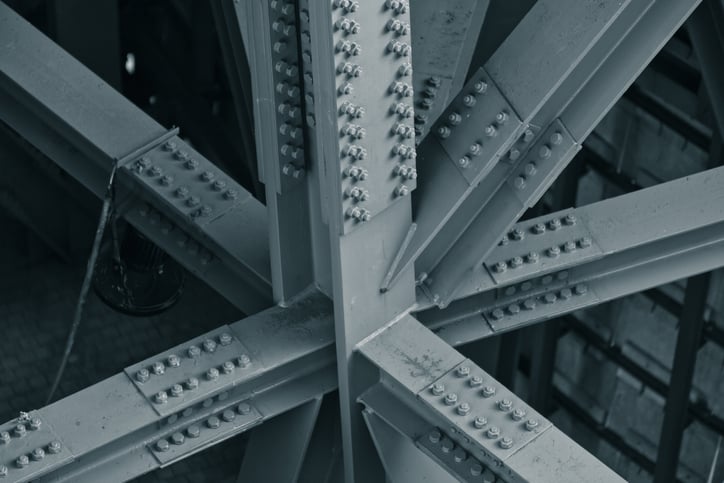
Construction fasteners typically connect structural members. They are critical to the success of a project, yet they’re not all the same. The same goes for many fasteners in the industry.
When components, objects, or machinery in the construction industry need to be joined in a non-permanent way, they require a multitude of fasteners. They're also made from several different materials, including:
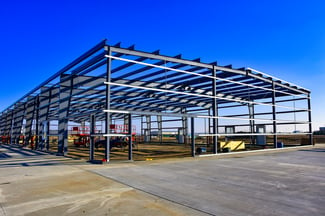
They can also be made from additional metallic materials to ensure strong and safe construction finishes.
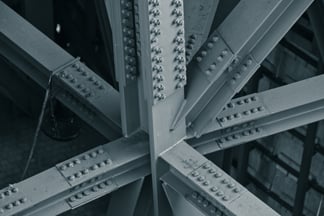
Different fasteners are used for various purposes. For example, the fasteners used in the automobile industry differ and serve different purposes from those used in the aerospace industry. And they don't have to be specialty fasteners.
But for the purpose of this post, we’re going to focus on the most common construction fasteners that are being used today and where you can find quality fasteners.
Construction fasteners come in a broad range of options based on requirements. For mechanical purposes, the most common fasteners include:
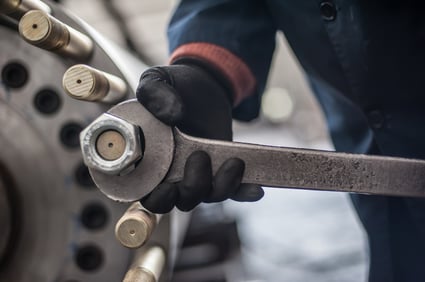
Now let’s take a closer look at each of these.
Screws are among the most versatile fasteners in the construction industry. They have a strong threaded shaft that gives them considerable holding power. They have a cylindrical body with a corkscrew-shaped ridge and a head designed in various sizes and shapes.
Screws somewhat resemble bolts, but their distinct advantage is that they may not require nuts to keep them in place. They come in different types that include:
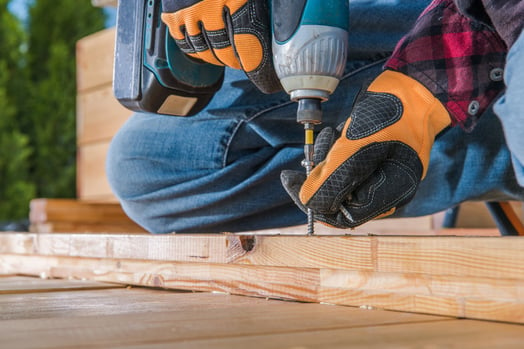
Nail fasteners are used in general construction applications. They are preferred because they have great shear strength and deliver more force.

Other types of nails include casing nails, finish nails, flooring nails, roofing nails, decking nails, capped nails, Drywall nails, siding nails, masonry nails, Brad nails, etc.
Bolts and nuts are common fasteners in the construction industry. The two pieces hold components together firmly. A bolt is usually inserted into the objects you want to join and then fastened firmly with the nut.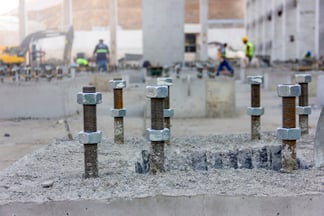
Washers are small circular, square, or shim metals prepared to handle unique requirements. They provide a hard surface for tightening the bolted joints.
The most common types of bolts and nuts are:
There are even double-ended bolts that you can use to provide an advantage on certain projects.
Anchors, commonly known as popular picks, connect items to a firm material such as drywall or concrete. They derived their name from marine functionality-they perform similar functions to boat anchors that hold the ship in the same place after docking. They come in various types, such as:
Studs, which are also known as threaded rods, are relatively long rods with threads on at least one end. They come in three basic types;
Each stud has a different application. The fully-threaded studs are covered with threads all over the body for full engagement with the mating nuts. Tap-end studs are threaded at extreme ends with unequal thread engagement lengths depending on the use. The double-end studs have equal thread lengths on both sides.
Do you have an upcoming construction project but aren't sure what type and quality of fasteners you should use? Well, Big Bolt has you covered! We can manufacture specialty fasteners or let you pick from our large inventory. We are also equipped to rush-manufacture and customize different products upon request to meet your schedule and ensure your project succeeds. Get in touch with us today to get a quote.
Construction fasteners typically connect structural members. They are critical to the success of a project, yet they’re not all the same....
In the world of construction, manufacturing, and various industrial applications, metal fasteners play a crucial role. They are the unsung...
Choosing washers is an essential yet overlooked part of a project. They're among the most common fasteners used in the industry. It may...
